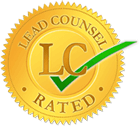Business owners hope that they will not end up on the receiving end of civil litigation. Given the number of lawsuits that happen in the business world, it may be inevitable that you will have to deal with a party suing you. If so, you want your company to be in the best position possible to weather the case.
According to Entrepeneuer.com, there are ways you can minimize or even avoid the kind of damage your company might suffer from a lawsuit. These steps may also help you to avoid litigation in the first place.
Screen your statements
Sometimes making a public statement can result in unwanted litigation. If you make a claim about your company’s services or products that does not pan out, another party could interpret or misconstrue that claim as fraud. Also be careful about the kinds of jokes you or your employees tell in the workplace. A worker or client could take offense to a joke or consider it harassment. Exercising caution when it comes to verbal or written statements may save you trouble.
Insure your business
Taking out an insurance policy could cover various expenses that arise from litigation. If someone suffers an injury on your business property, carrying personal injury insurance could cover a personal injury claim. Another option is litigation insurance. Buying this kind of policy may protect you from different kinds of legal action against your business.
Use a business entity to protect assets
Losing a lawsuit can put your personal assets at risk if you are a sole proprietor or are part of a partnership. One way to protect your assets is to create a business entity that exists separately, like an LLC or a corporation. In the event a court hands down a judgment against you, payment toward satisfaction of the judgment will come out of your business assets and not your personal bank account.
Avoid unclear areas of law
Your policies and contracts should be as precise as you can make them. Clearly define your services in your client contracts and make your employment terms clear to potential hires. Otherwise, you could risk a worker or a client suing you for breach of contract. Also, be sure that your business complies with existing intellectual property law. If you use a copyrighted picture or video in such a way that it violates the rights of the owner, you might face litigation from the copyright holder.





